Ep7: Placemaking and growth for Weston-super-Mare
In this podcast, Becky Walsh talks to Alex Hearn, former Assistant Director of Placemaking and Growth for North Somerset Council. Alex talks about the economy of Weston-super-Mare, how placemaking is helping Weston become a vibrant place to live, work and visit, the levelling-up fund, private investment, and his hopes for the future of Weston.
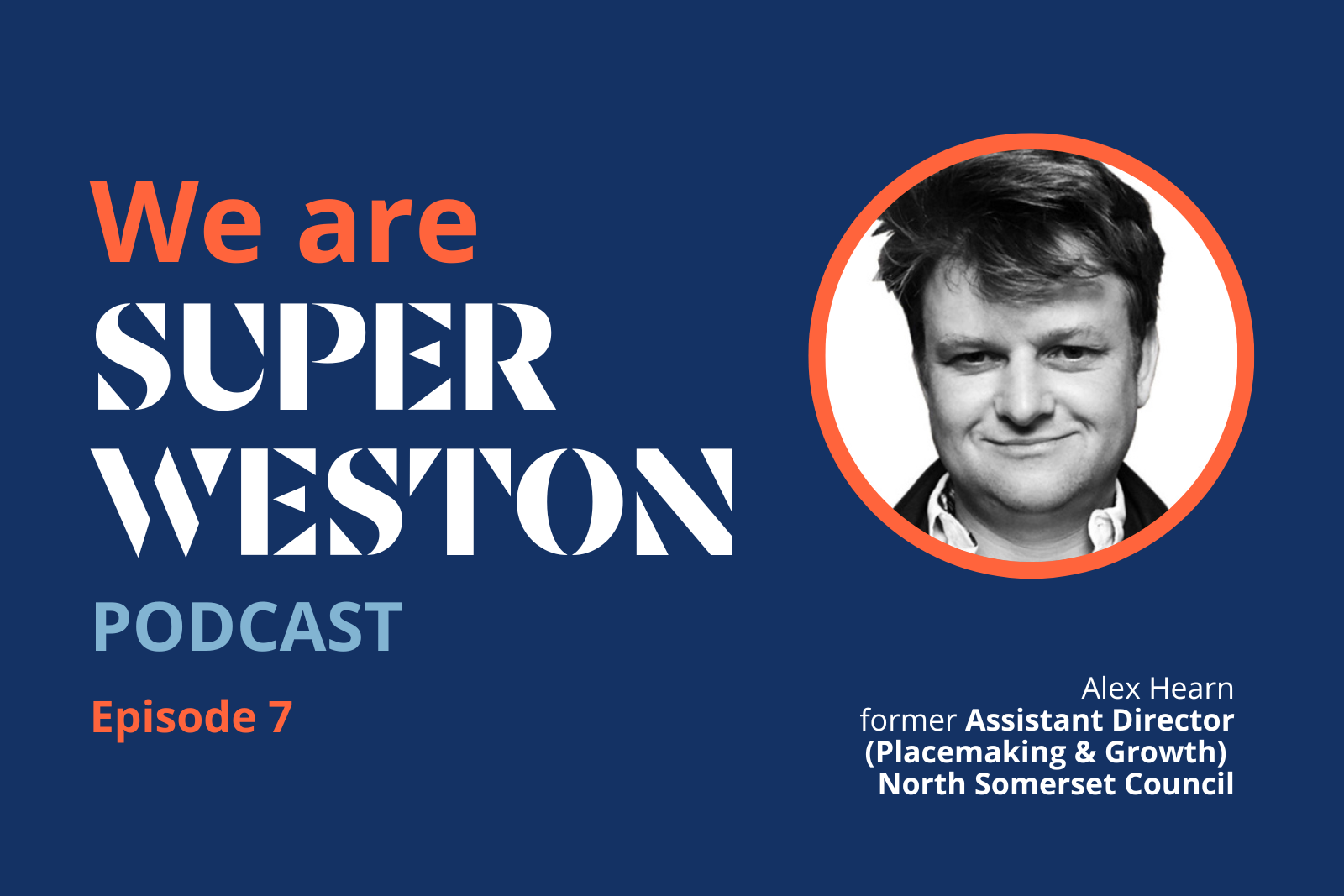
Becky Walsh: Tell us about your role with North Somerset Council?
Alex Hearn: My job is to lead and coordinate the output of services at the council like regeneration, economic development and planning, and property and all of our building projects. It’s my job to use those services to try and close the gap between the measures of economic growth, which has long been a target of councils. It’s also about the measures of prosperity and equity for local people so that there’s a real benefit for them.
I have these tools, and work with lots of other people and partners to help drive prosperity, so people have got somewhere to live, can afford housing, access skills and work and get a career and have infrastructure and facilities in their neighbourhoods.
Critically, I’m responsible for our programme around the climate emergency. The idea is to do all of what I’ve just said, but in a way that has the least impact on the environment and planet and hopefully, actually a positive impact. It’s also my last day today after five years.
BW: It’s an unbelievable job, because that’s a heck of a portfolio of work that you’ve been doing for the last five years. What will people have seen that you have been leading on?
Across the town, you’ll have seen all the WSM branding. That’s all part of our regeneration programme in the town.
My teams created the initial ideas around The Stable. We bought some vacant land in the town off the government, which we’re now going to bring forward for development. A lot of my services were deeply involved, along with loads of other partners, with SEE MONSTER, which was a massive thing for the town last year.
The Sovereign Centre – or The Sovereign as we now call it – there’s been some changes in there.
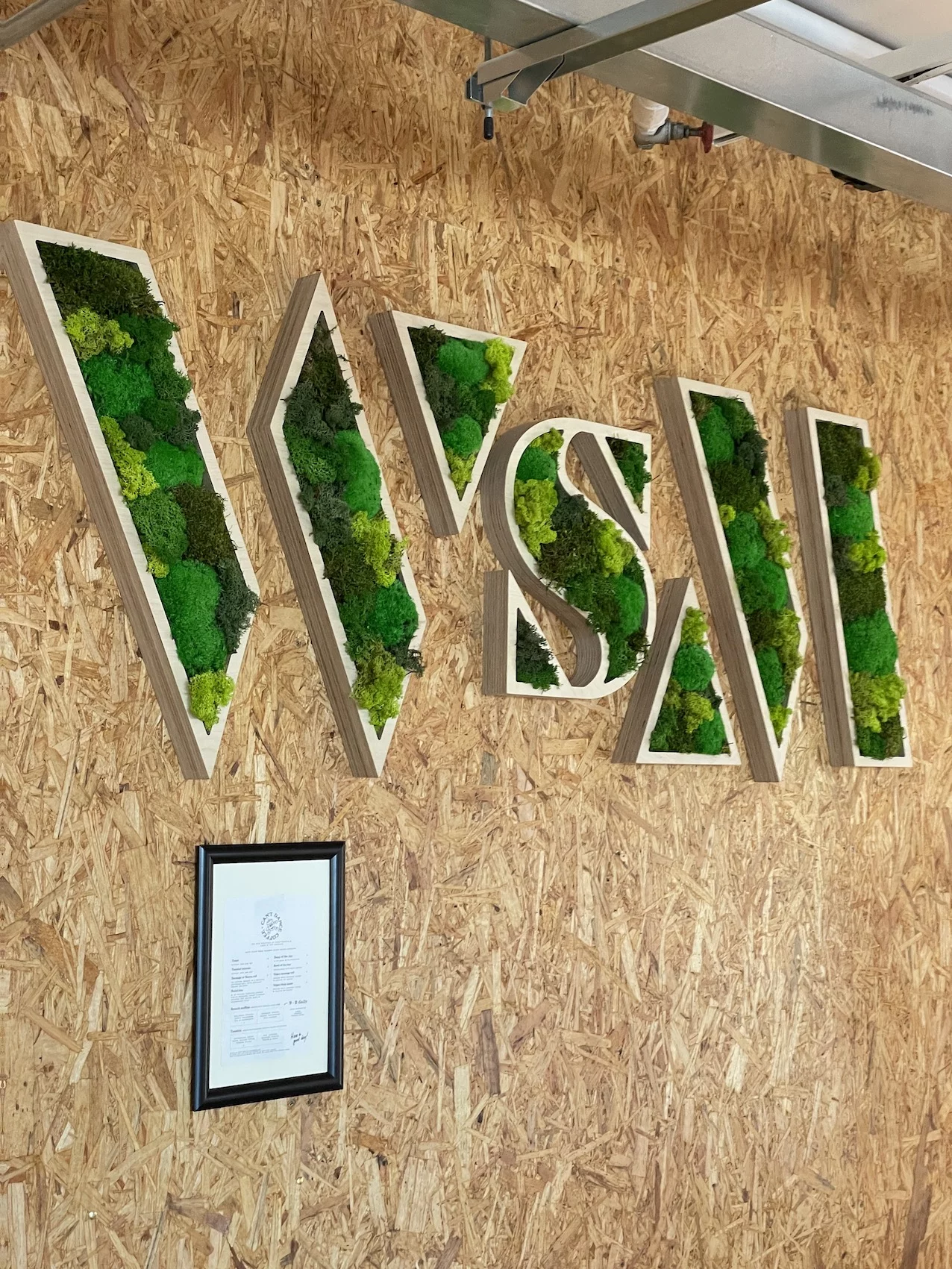
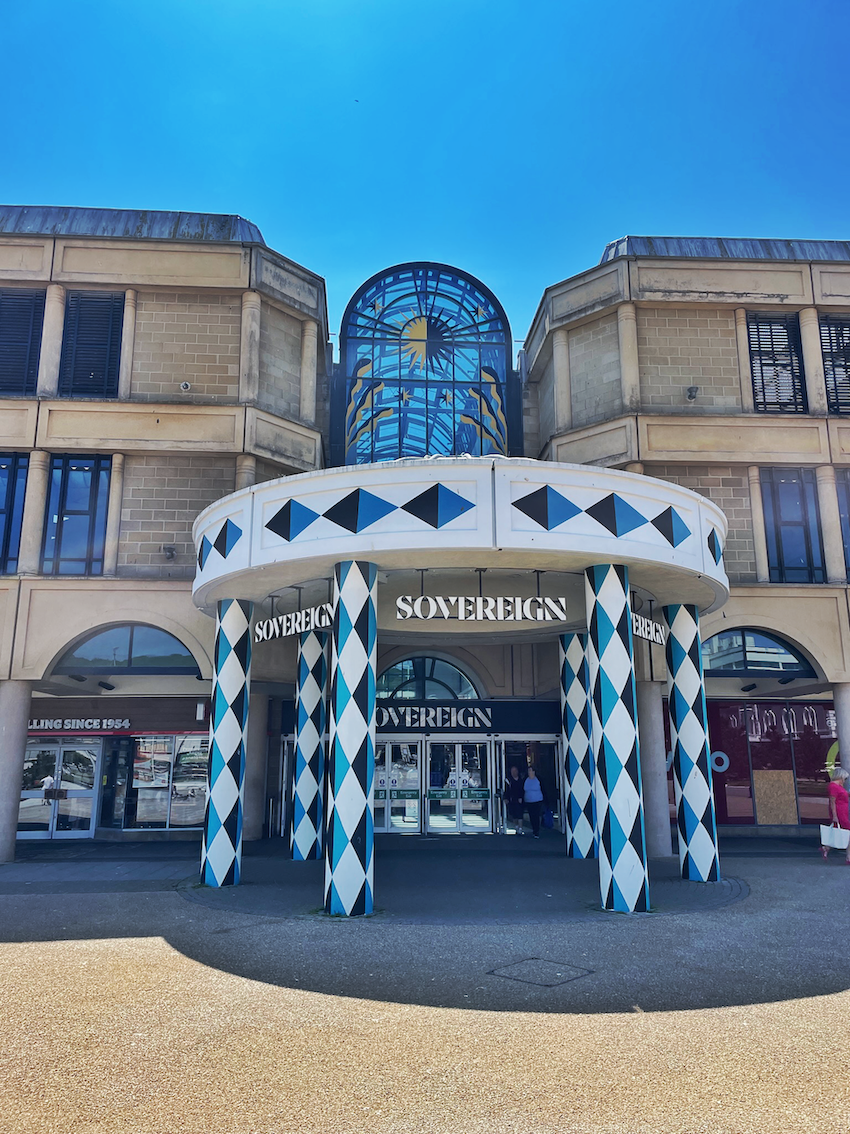
Tell us about the land that you’ve bought.
A while ago, the government’s housing agency, Homes England, acquired some land in the town with the intention of developing it, and they just got bogged down, they couldn’t get it going. So we bought it from them last year, and we are now going to bring it forward, probably this summer, and launch a process to find good, enlightened development partners.
The word ‘placemaking’ is something that’s been bandied around a bit, some people will understand completely what placemaking means, and other people won’t. So tell us about placemaking. What is it? And what’s the vision of it?
That’s a really good question. I guess it means different things to different people, and also in different contexts. Sometimes it’s about putting together the big building blocks that make a place, like new homes, or some streets or doctor surgeries, schools.
I prefer to think of it more as a sort of curatorial exercise. So when those building blocks come along – and often that can take years – it’s done in a way that can have the most impact on people’s prosperity. It’s not about economic growth, it’s about the impact investment has.
That’s what I think it is. I think it’s something that’s very human, very grassroots, and very participatory, invested in things like culture.
So it’s about people who live in Weston having a place that they love living in, but also really nice for other people to come and visit. It’s about lifestyle, and having a situation where people can actually feel that they’re thriving in the town that they’re living in.
AH: Yes, I think that word thriving is really important. Quite often it can be about fixing stuff, particularly if it’s been broken a while. Across the country there’s all sorts of challenges around the condition of infrastructure at the moment.
But it’s about investing in things and delivering things that are going to have a demonstrable impact on improving people’s life chances, and creating opportunities for people. It’s important that there are local people, who might want to move to an area where there’s opportunities for them coming from this approach to regeneration.
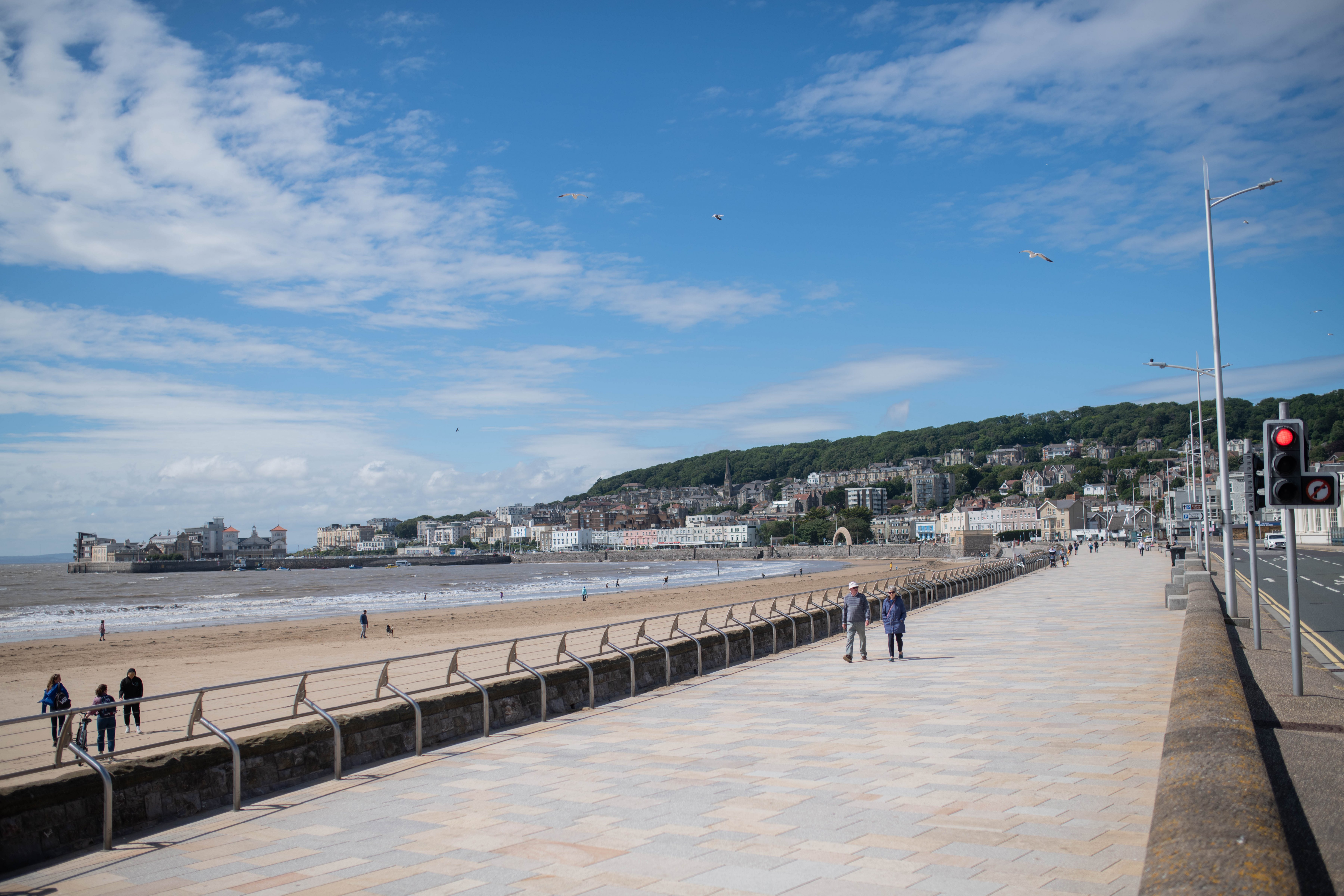
Tell us a little bit about the Super Weston strategy for placemaking.
I guess on a very basic level, it’s a vision for the future, and then an action plan for delivering it. If you take a look at the strategy for Super Weston, it’s full of projects that we and our partners are now busy trying to deliver or attract funding for.
In previous jobs, I’ve created a few of these kinds of regeneration strategies, particularly in London. But when I arrived in Weston I was really struck by a few things. One, it’s an absolutely beautiful town, with really stunning old buildings, beautiful Victorian parks and gardens, it’s got an amazing landscape around it. And then of course, it’s got the bay, as well, so it’s a town that was built on the notions of joy, and having a great experience and recuperation.
I think those things are really, really relevant these days. I’m keen that we build something around joy and experience, and we’re conscious of that experience in a world now where nobody really needs to go into town, you’ve got to convince them that they want to, because they’ll have a great time when they’re there – experience is really important.
And that’s such an advantage for Weston, because it was a town designed to do that. That experience and shaping the vision around that is really, really important. It’s about telling beautiful stories about it. Super Weston – you saw what we did there – it’s an absolute marketing gift to have that as a word so we’re using it as a campaign.
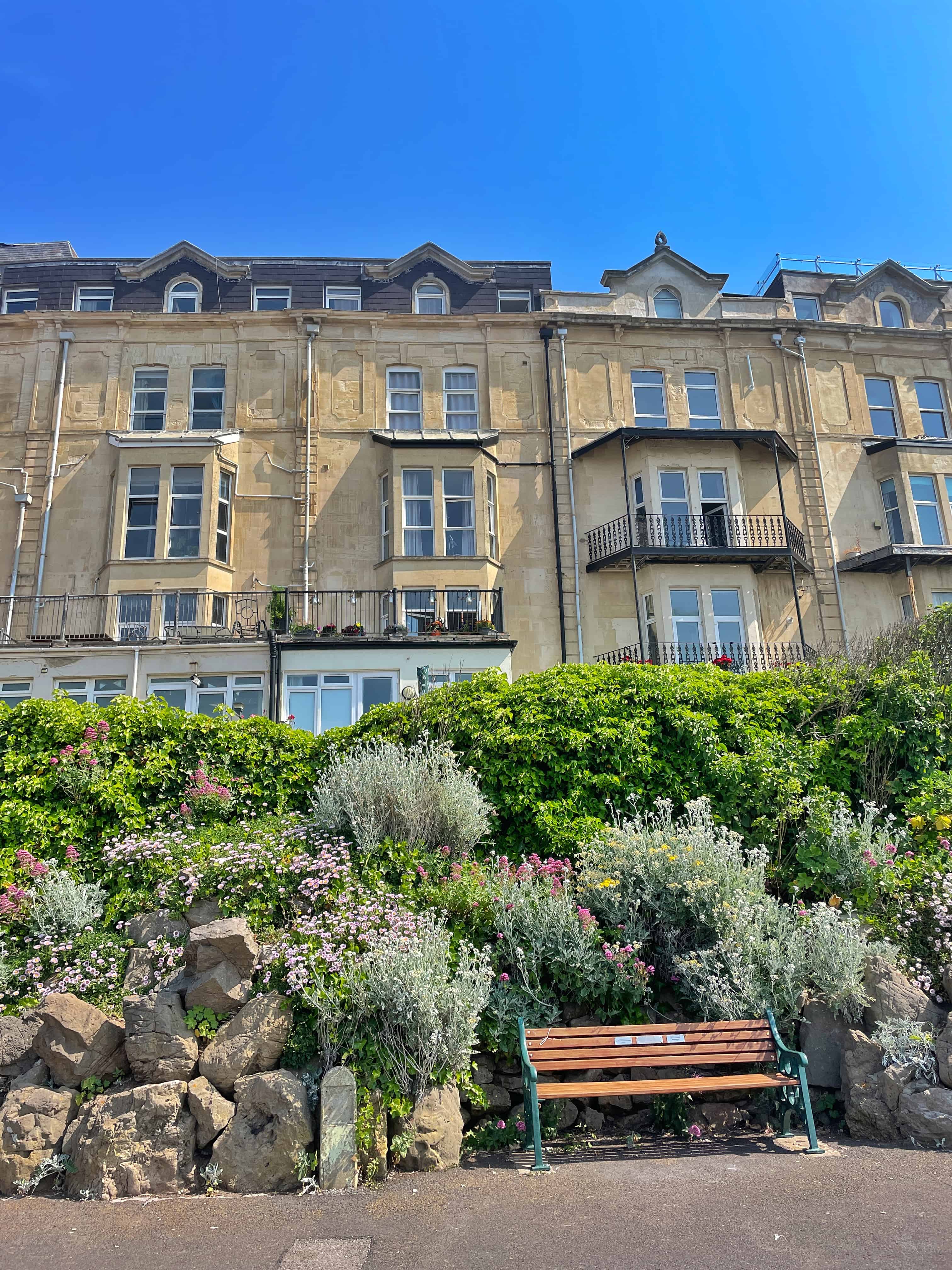
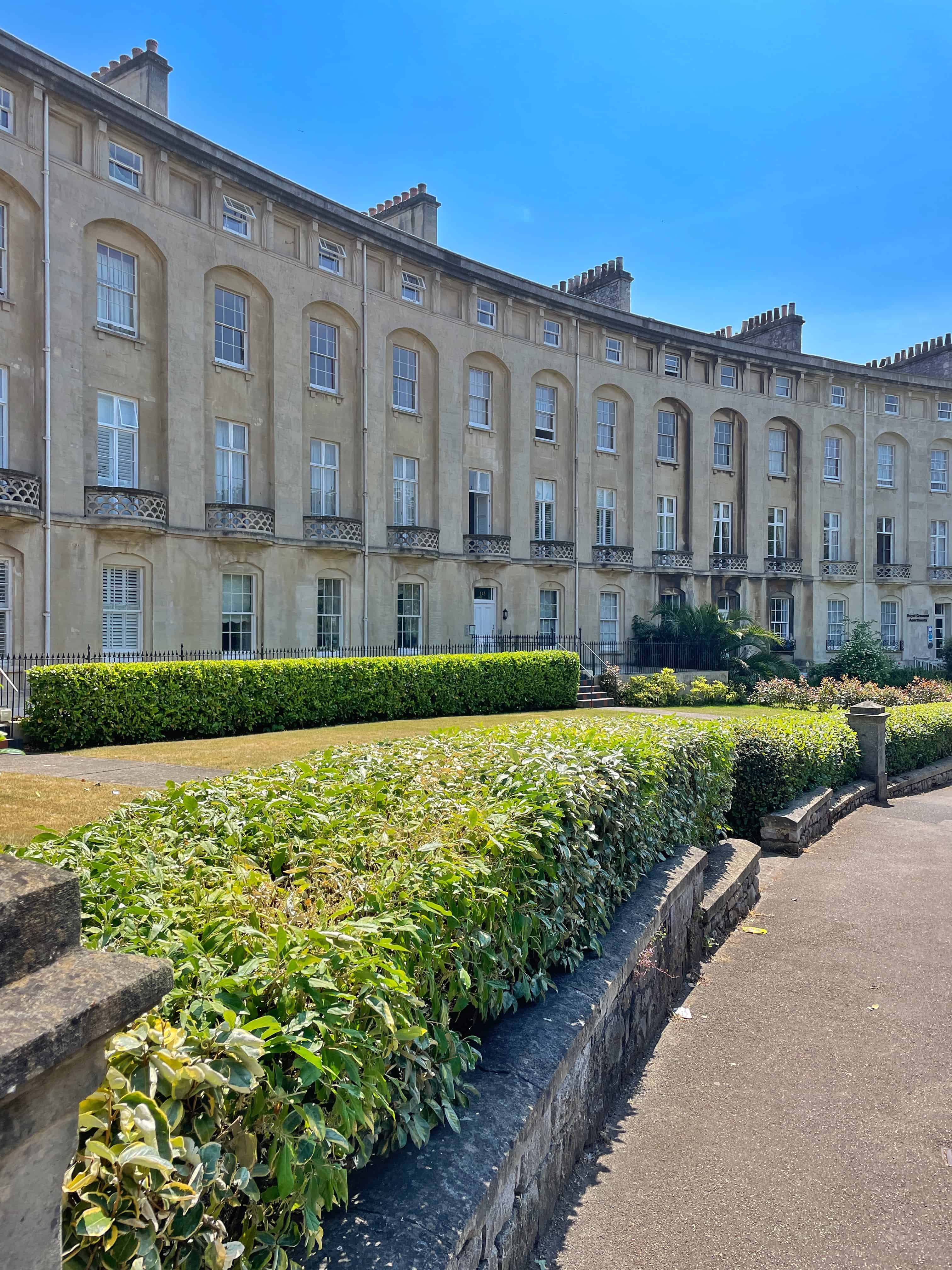
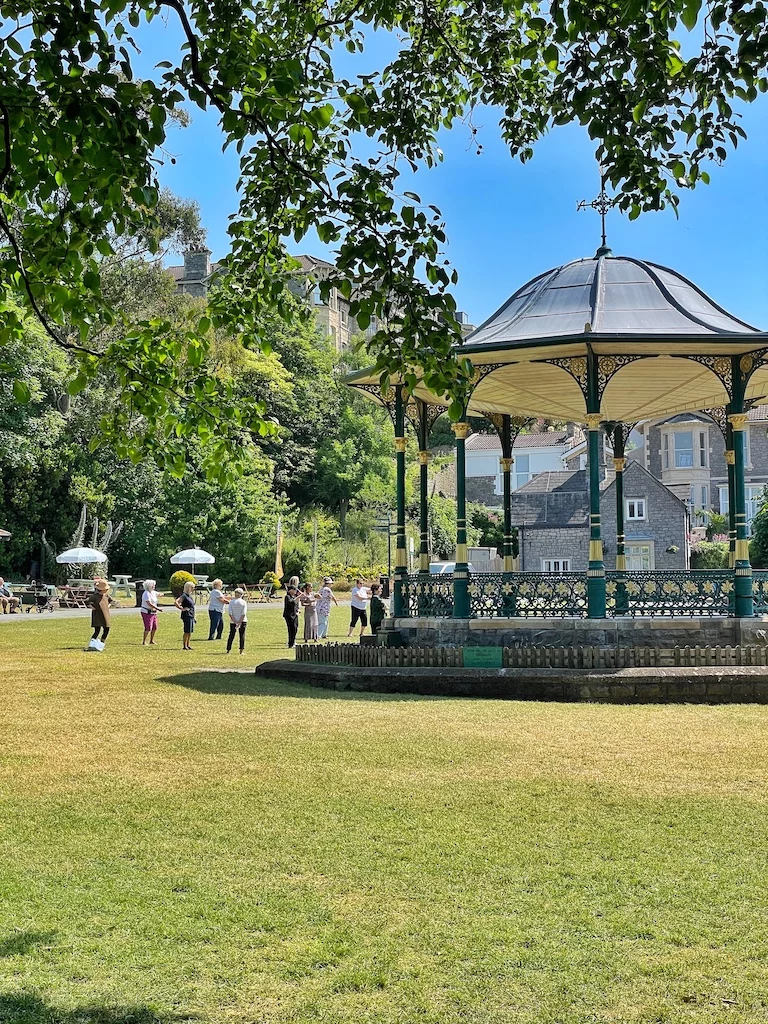
It’s interesting when you’re talking about that original infrastructure, because you’ve got Italian Gardens, and the pedestrianised High Street, newly furnished with trees, and the promenade, and then that massive beach, and the tree-lined hilltop.
We are turning ourselves into a festival town, which I think is something that came out of the original placemaking strategy. Weston is able to put on some really great events – we saw this with Glow last year. This started in Grove Park, with Culture Weston funded by Weston Town Council, Arts Council England and North Somerset Council, and it started to spread – The Grand Pier got involved, and we’ve been projecting onto buildings as well. So suddenly, the Glow event has gone from being a relatively large event in a park, and then taking that into Italian Gardens, the pier, to outside Brunello Lounge. This town has got this incredible, versatile landscape to be able to do so many different things.
There’s some fundamental shifts, and every town and every city is trying to work through that challenge. Weston High Street’s definitely got some challenges, but we are a town built on experience, so we have an advantage and 5 million visitors a year, this again, is a gift.
It’s about how we blur those boundaries between tourism and the visitor economy, and the experience economy, which is what towns all over the country and perhaps all over the world are having to adjust to.
That point you made about Glow and Culture Weston, and all the other amazing things that have been going on – they’re great from an experience perspective, and they’re really powerful from a health and wellbeing perspective, and they create commercial value.
People work in the industry, people earn a living, they’re developing skills. But it’s also a really, really important ingredient for attracting investments, because people are going out having a great time, they’re spending money, that’s creating jobs. We really see the integration of that and I think that’s been a bit of an adjustment for us as an organisation over the years, but it’s really vitally important.

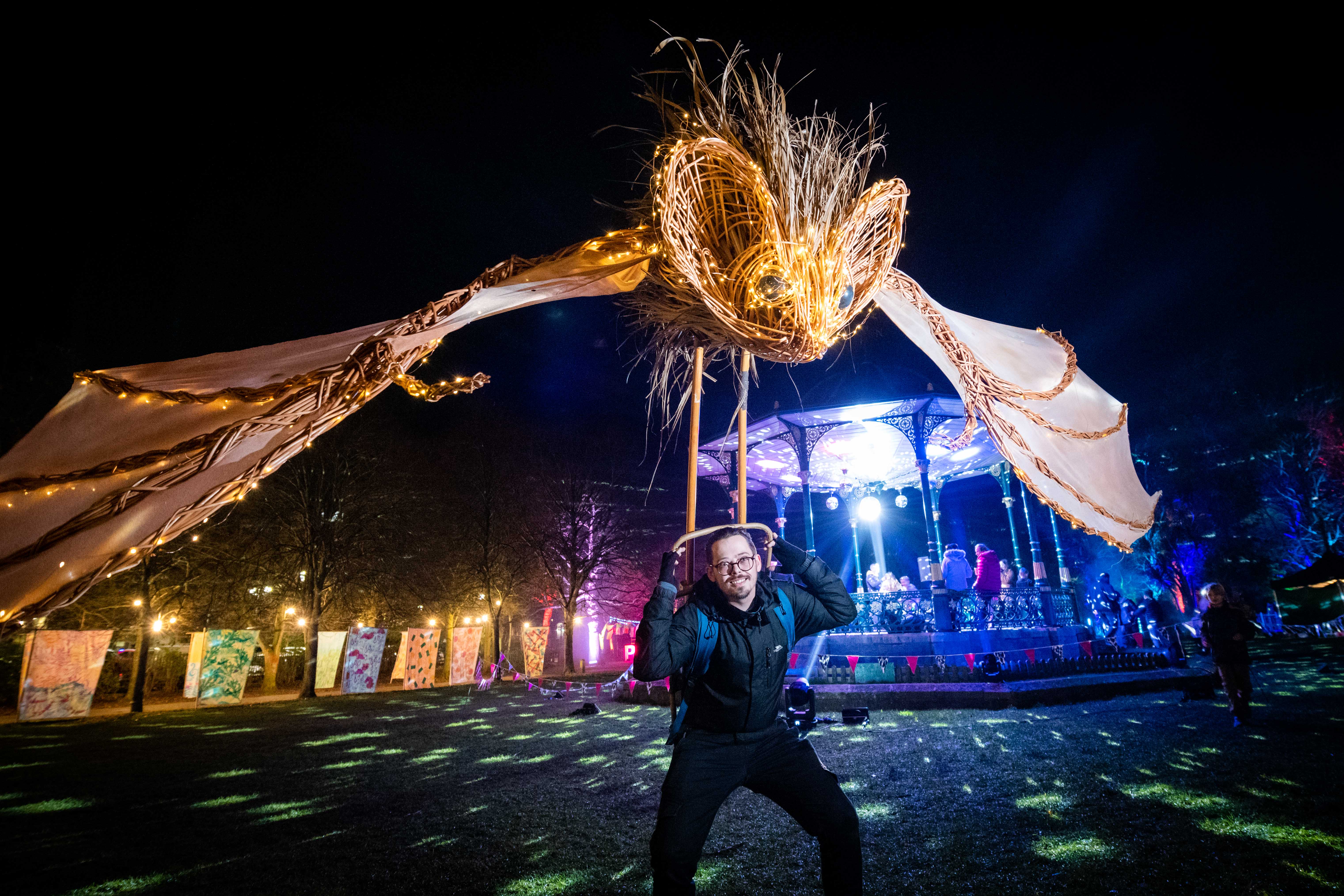
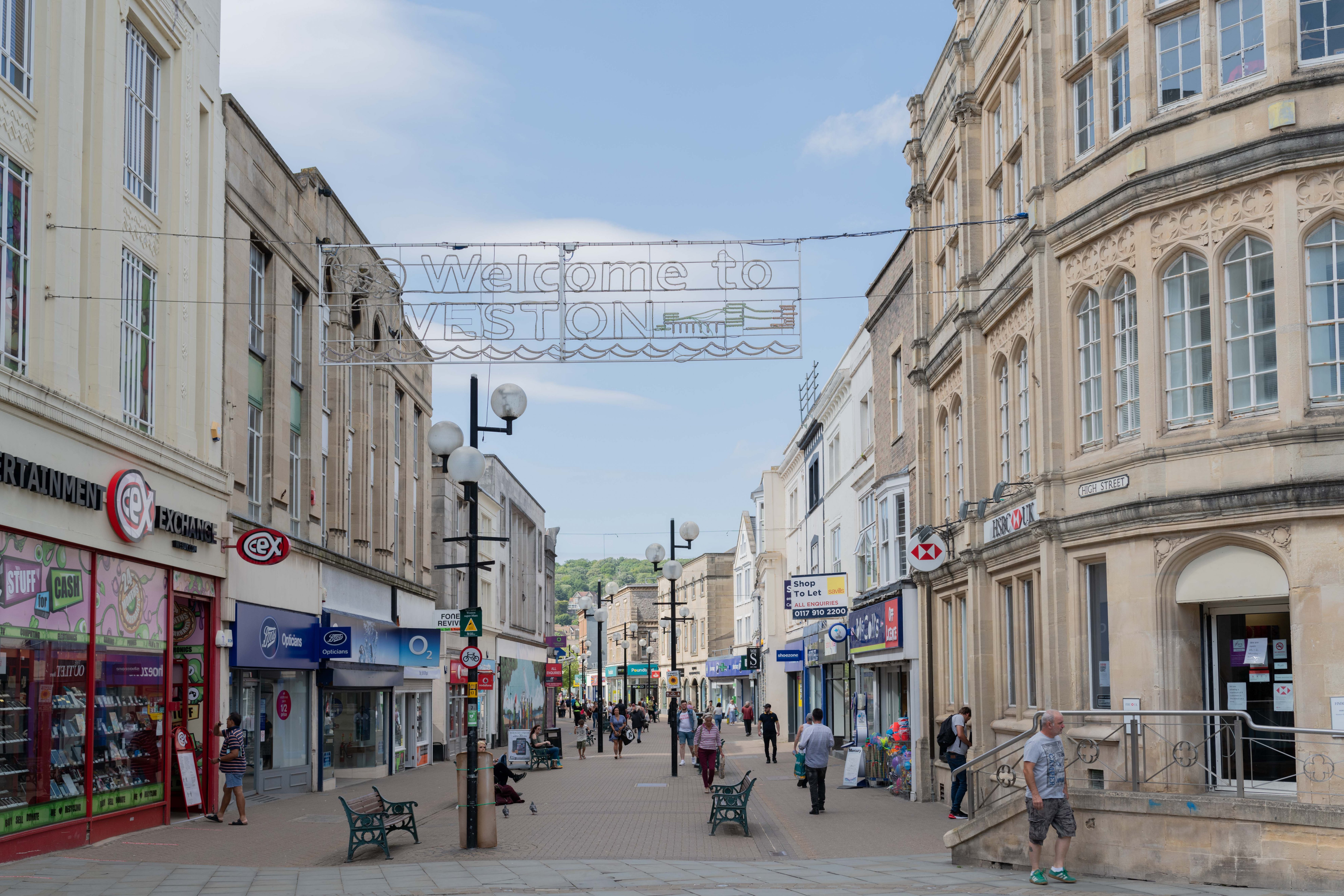
When you say that’s been a bit of an adjustment, can you speak more on that?
I think in years gone by, we didn’t really get it as an organisation, not as overtly as we do now. There’s been this growing energy in the town, there’s some wonderfully creative people in the town, all sorts of art and media types, whether it’s music or animation or painting.
We’ve got the interest of the Arts Council – they love Weston, as do Historic England and that’s really helped us to attract investment and funding for things and create a bit of momentum, help that grassroots activity that’s here, help where we can and get a bit of oompf going, then stand back and allow it to do its amazing stuff. If you look at Instagram over the last year, Weston has been having a wonderful cultural party.
BW: It’s the power that counsellors have to empower. When we look at places like the Front Room, or Weston Art Space and how they are run by the people, the fact that The Fridge of Free Stuff with Hub Zero is run by volunteers – these are people who you give a bit of something, and they can really run with it and get it over the line.
That’s what is incredible about Weston-super-Mare, the people that live here, you just give them an opportunity, and they will take it the rest of the way. We saw that with the Think Tanks for SEE MONSTER, we’re repeating the Climate Carnival that started with that, the fact that the Weston Tree and Plant Group is still going off the back of that little bit of investment.
Talking about investment, the levelling-up fund of £20 million. Tell us a little bit about what that’s going to be spent on and how exciting it is.
AH: It’s really exciting and well-deserved for the town, because an immense amount of work went into getting that. We want to invest in things that historically are still doing, and can do better at providing an experience for people who live here and for visitors.
We’re going to be investing in The Tropicana and we’re going to be investing in Birnbeck Pier, we’re going to be investing more in Marine Lake, the High Street and Grove Park, with its wonderful Victorian gardens.
Between all of those spaces, we want to do some really good, creative wayfinding. So we sort of manipulate all that footfall that goes up and down the seafront every summer, and try to drag a bit more of that into the town centre, because that’s going to support businesses.
Wayfinding is really important. People don’t necessarily know about these little areas that are really full of life and culture and independent shops, it’s trying to get people to be conscious of the fact that it isn’t just this one straight promenade-style High Street.
There’s serendipity and peculiarity everywhere in any town, and we’ve got it in Weston. It’s that notion of discovery – discovering stuff is really powerful, it’s a great experience to go through when you discover something, you have your own experience with it.
That’s how we want to work with wayfinding, to help that happen. If somebody walks from the seafront to Weston Museum, they’ll walk past 200 businesses on the way. So how do we divert that footfall in a way that it has an impact on the local business community as well? That’s the intention.
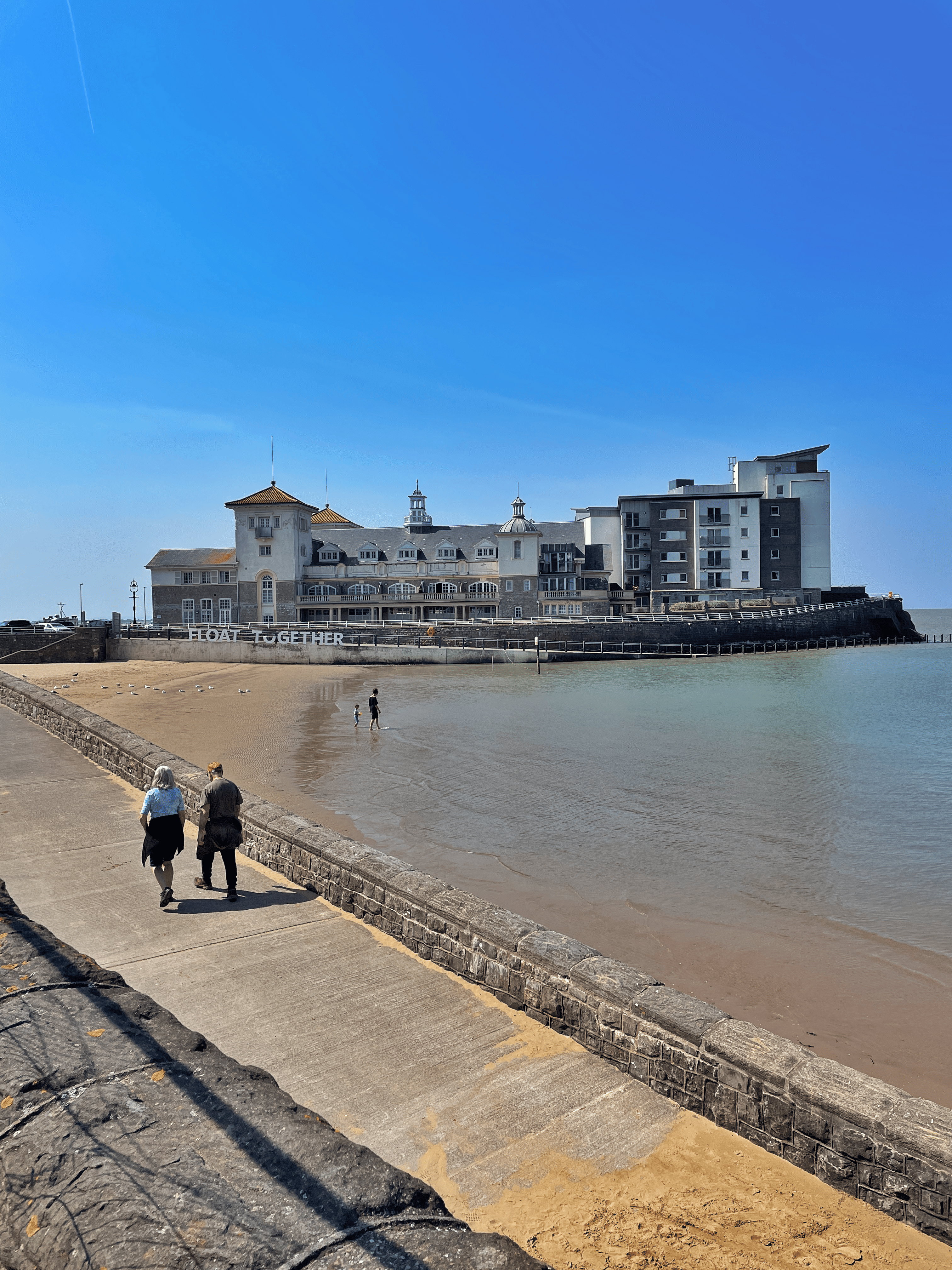
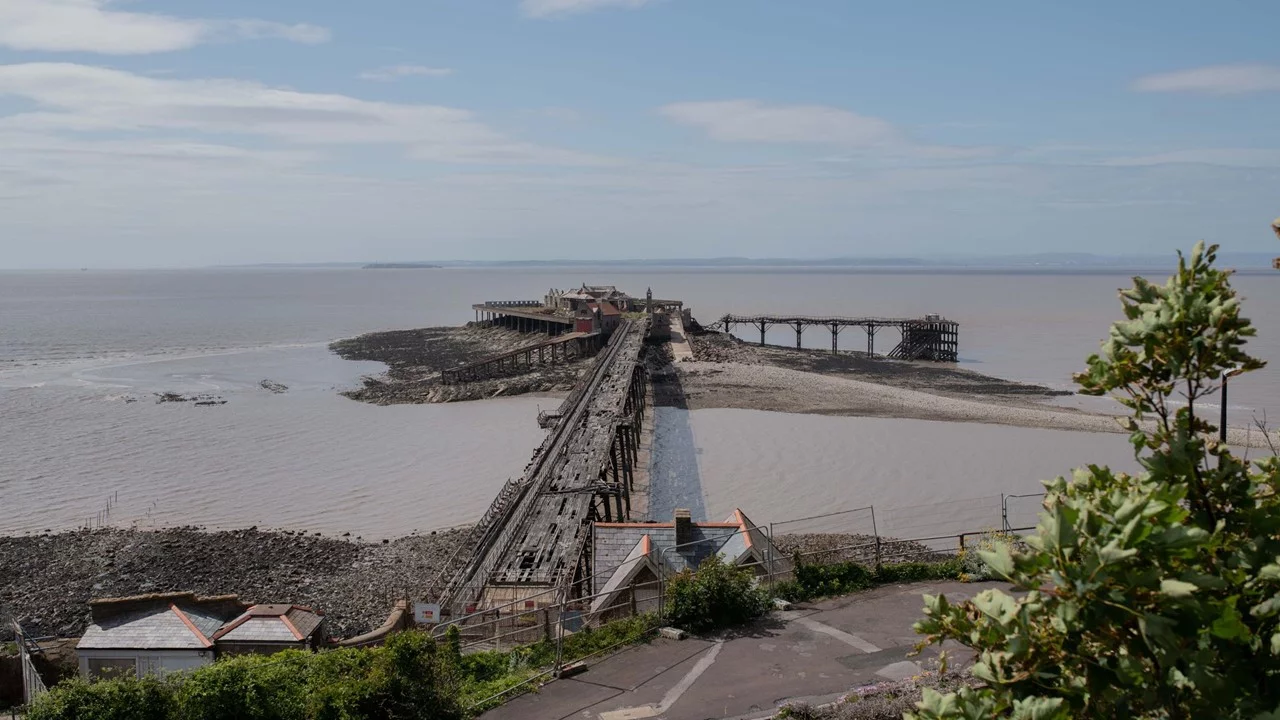
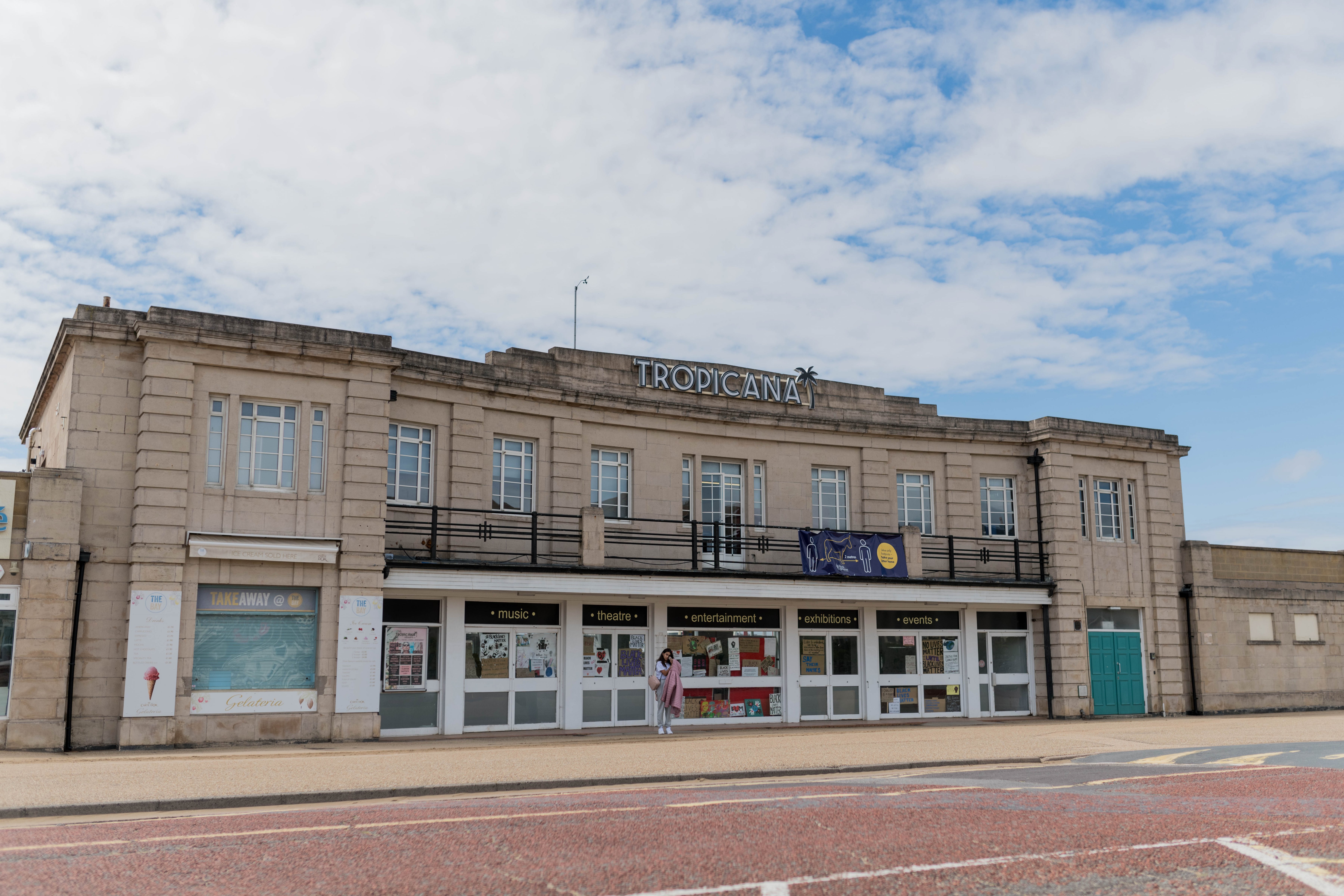
You’ve mentioned a few things that money is going into, can you give us any particular nuggets that we might look forward to?
The Tropicana pool idea is so expensive, it’s really not viable. On the other hand, we want to make Marine Lake a much more usable amenity year-round and throughout the day. There’ll be more to do around there, we’re thinking about food and drink, more access to the water for people with different abilities, more activity on the water.
With The Tropicana, the ambition is to really grow the capacity so we can have a richer mix of events and programming of different types and sizes. The Tropicana is an amazing venue, and there is interest from really amazing organisations.
In terms of the High Street, we’re going to be investing in some of the empty shops and the more rundown shops, to really fix them up inside and out, and then think about how we can make them available to people in a way that really diversifies the town and brings more footfall, which can then support existing businesses. So a lot to do, a lot going on, and a very, very busy but brilliant team, getting ready to deliver it.
There’s some seriously enlightened developers and investors out there who have access to socially-responsible capital and they’re interested in Weston because they get what everyone’s been trying to do here, they get the culture, they get the health and wellbeing, they get the intrinsic beauty of the place. This stuff takes time, but it is a real chance to face that opportunity and shape it and make it the best it can be.
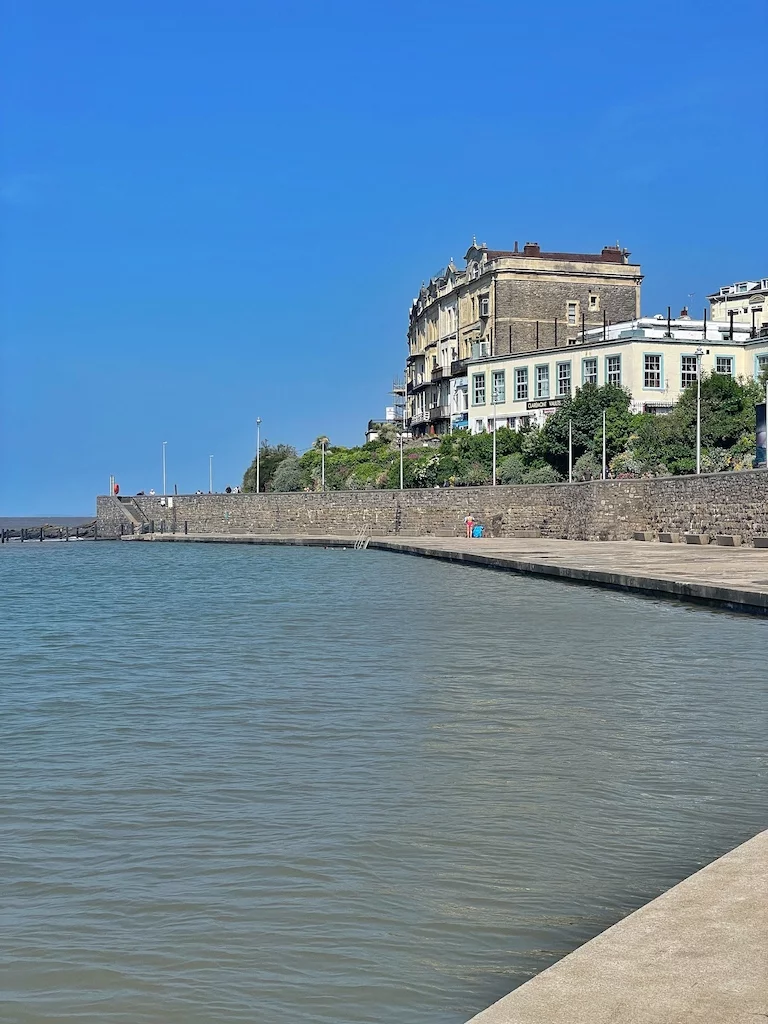
These pockets of investment that are coming are also going to be quite inspirational for the private sector to invest in Weston. Why is it important that that succeeds?
That’s the plan. I think it’s essential because quite often, public funding is very targeted. More often than not, it’s just simply not enough to make an impact on its own, although it is really, really important. It’s the volume and the breadth that good quality, conscious, private sector investment can bring.
It will create opportunity in the town, new homes and affordable homes for people, it will drive local expenditure because more people are around spending money, that will create jobs, that can create better paid jobs, that in turn traps money in the economy. It can create futures for young people.
Of course you’ve got a great college that’s doing that as well. There’s been a fair bit of public funding in the town over the last decade or so, when you think about what Weston College has attracted, and some of the public realm projects, and now levelling-up. I think it’s created the conditions and it is now time for the private sector to come in. I suppose investment almost always comes with some changes in development.
Also, it’s not just about the public sector and the private sector, there is so much activity, and investment and social value created by the voluntary sector in social enterprise, which is really strong in the town, and there’s been some brilliant work in the last few years through various networks doing their own thing and creating so much resilience and strength within the town. It’s all important and it all has a role to play.
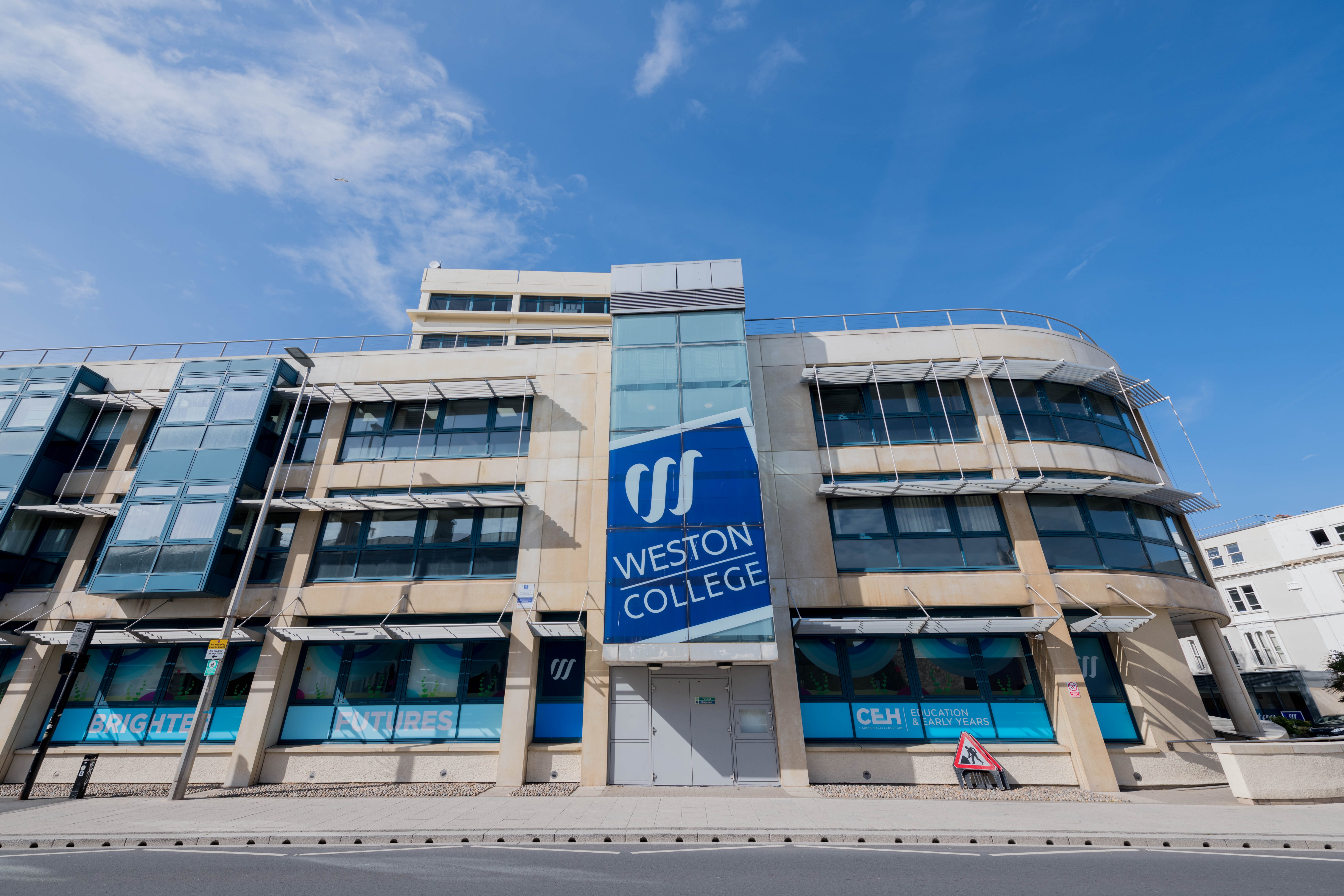
I want to know about the experiences in Weston that you personally enjoy. So where is your favourite restaurant in Weston, where do you love to eat out?
I love Loves and I really like Sprout as well, which is affiliated. Fantastic pizza at Il Michelangelo’s. It was my leaving dinner last night and I had a great chicken burger in the Fork ‘n’ Ale. There’s amazing food all over Weston – brilliant Japanese restaurants as well, there’s no shortage of good food in the town, that’s for sure.
When you’re desperate for a coffee where do you go for that?
Sprout does a mean flat white in Grove Park and Can’t Dance Coffee in The Sovereign.
Where do you like to go shopping?
There’s some brilliant independent shops. There’s institutions like Walker and Ling – sixth generation, family business, which is just brilliant. Really great service in Outdoors and Active. I really like Vintage Abs – a vintage clothing shop with beautifully-presented, great stock and a great experience when you go in. I bought a houseplant yesterday and had a great experience in Your Houseplants.
BW: Sometimes I go into Your Houseplants with a photograph of one of my plants that is struggling and show it to the team and they’re like, ‘too much water’ – there’s always an answer for what am I doing wrong. I just love the fact that you’ve got that on-hand wisdom and knowledge.
Is there one little thing about Weston that you wish that people would get because it’s underrated?
The fact we’re really close to Bristol, which is only 20 miles away. Get on the right train, it’s only 20 minutes. Bristol is seen as a cultural powerhouse in the country, but I implore people to have a look and see what amazing world-class culture and creative experiences you can get in Weston. Not just the bold and the brash like SEE MONSTER, but the every day activities going on in Grove Park. I understand there’s a free yoga class in Ellenborough Park now with something like 150 members.
Yes, Ellenborough Park on a Sunday morning, 930am – 150 people go down there and they do pilates on a Wednesday. You just need to go into the Weston Town Council website to be find details.
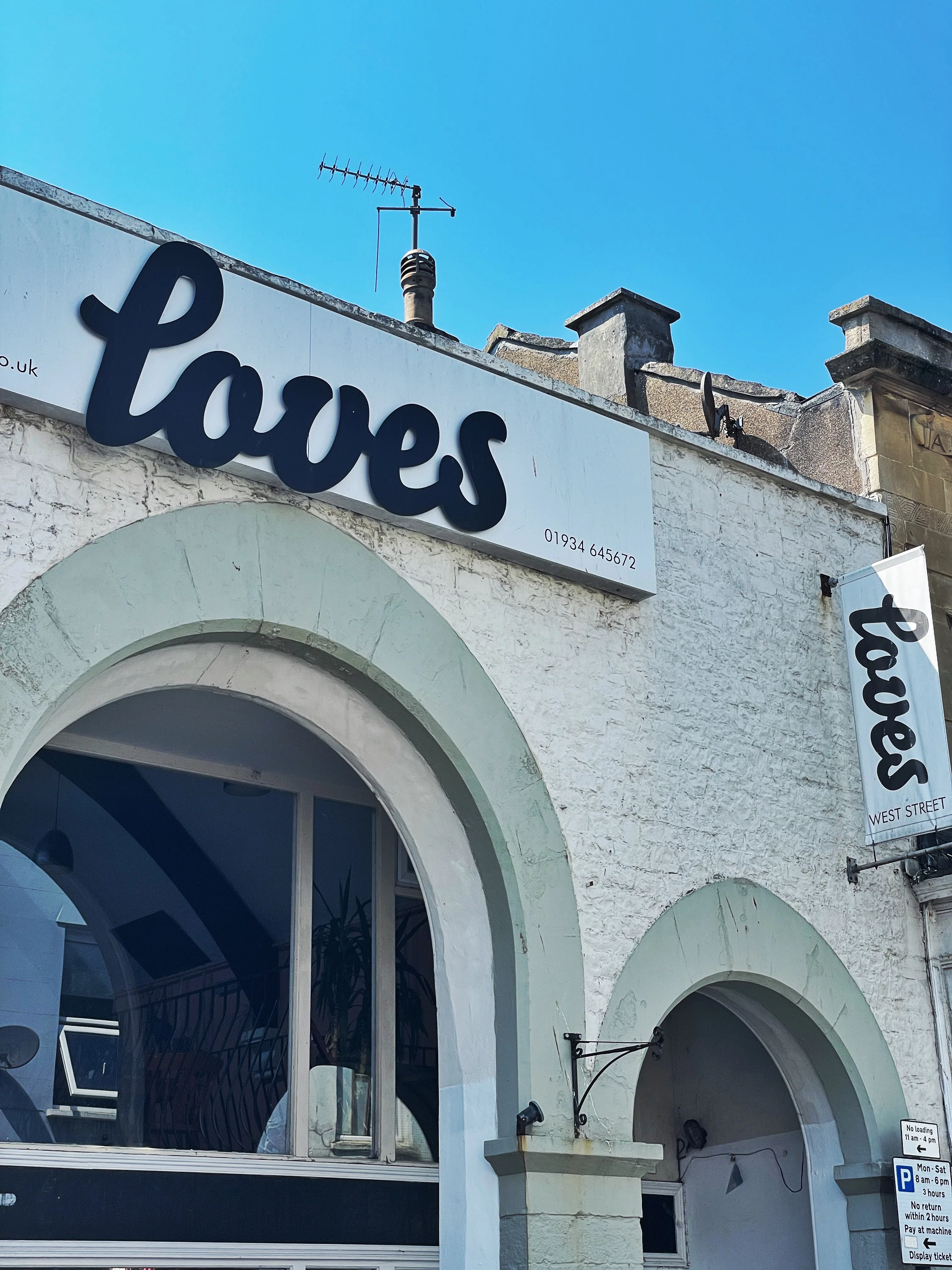
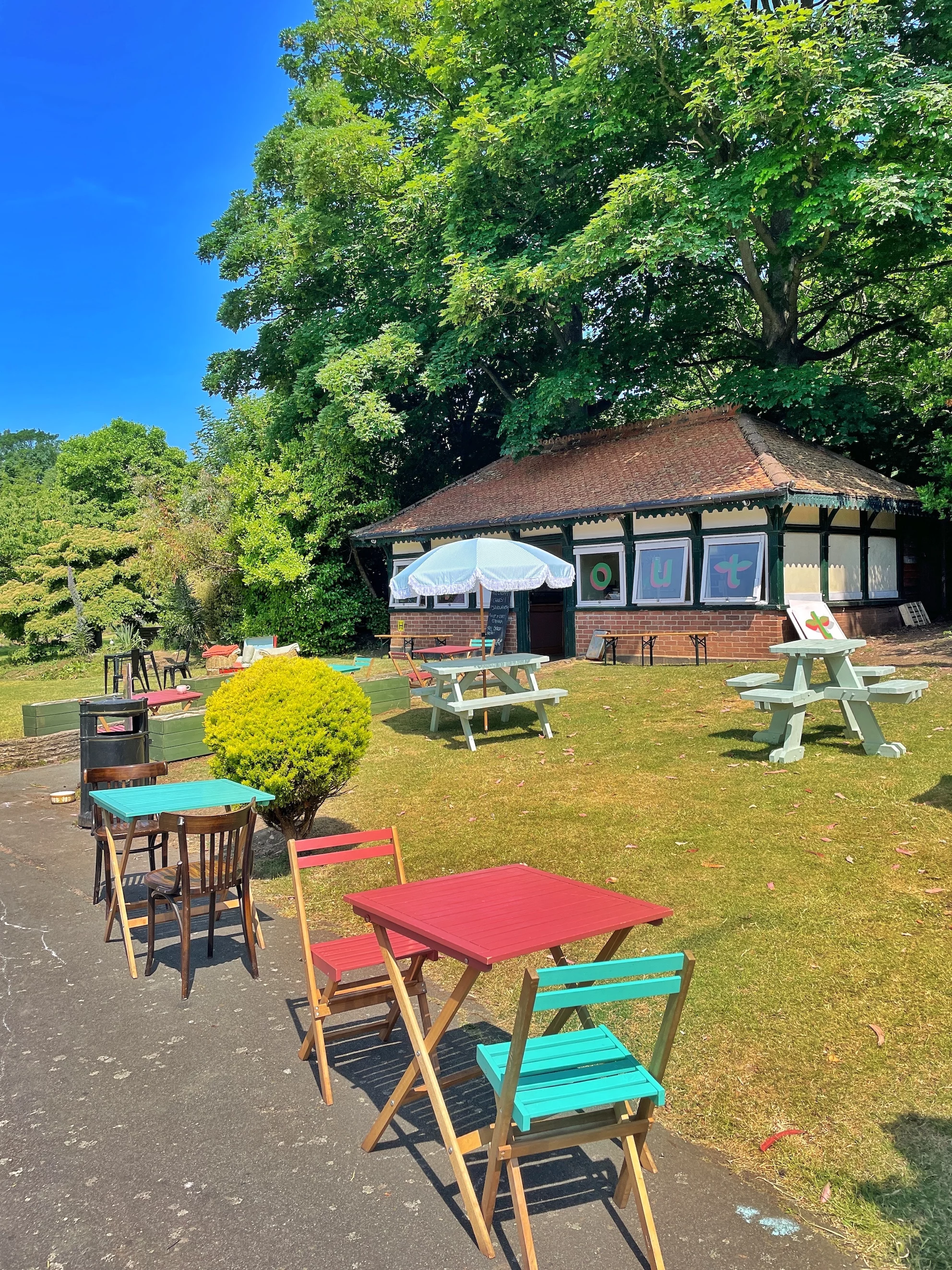
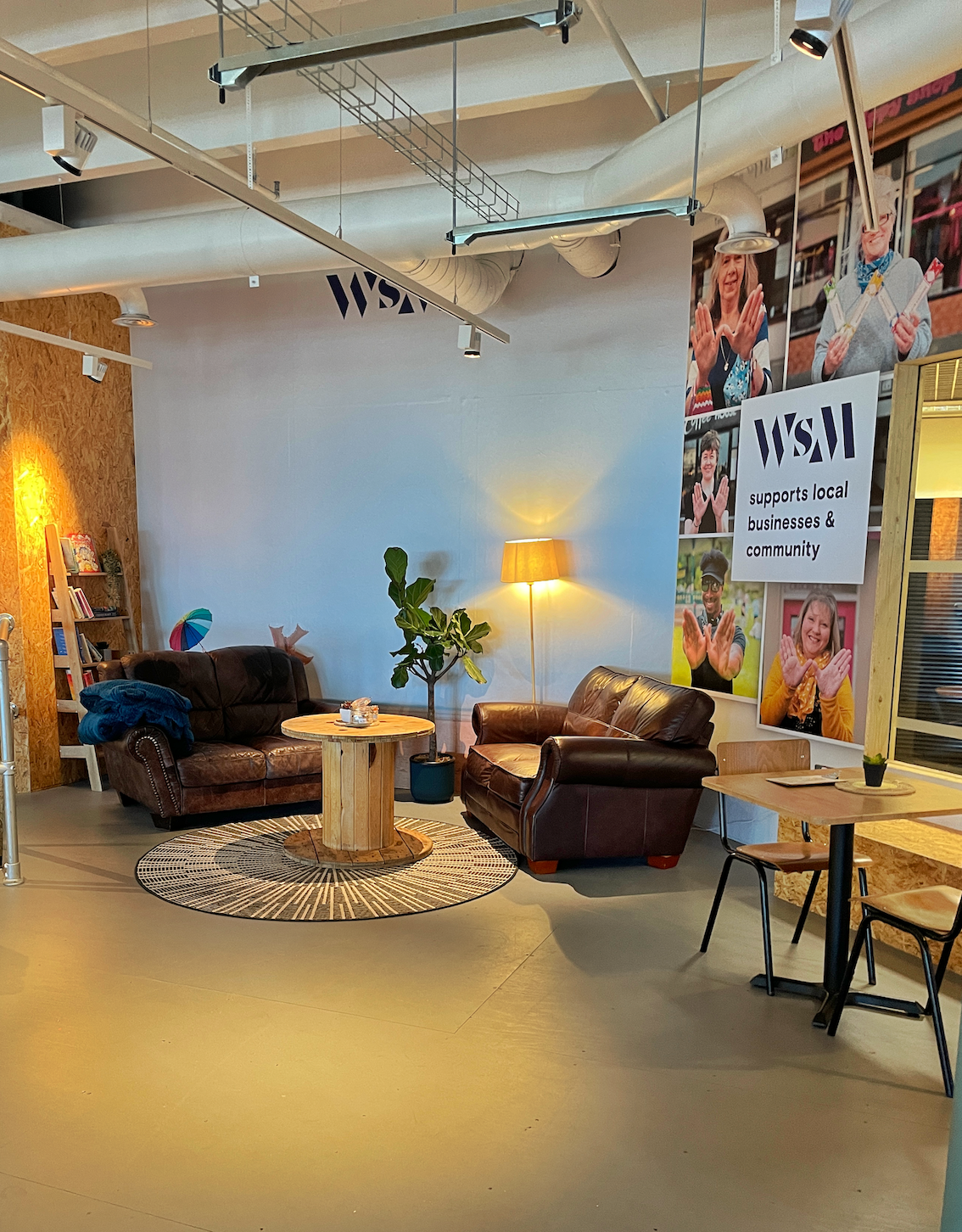
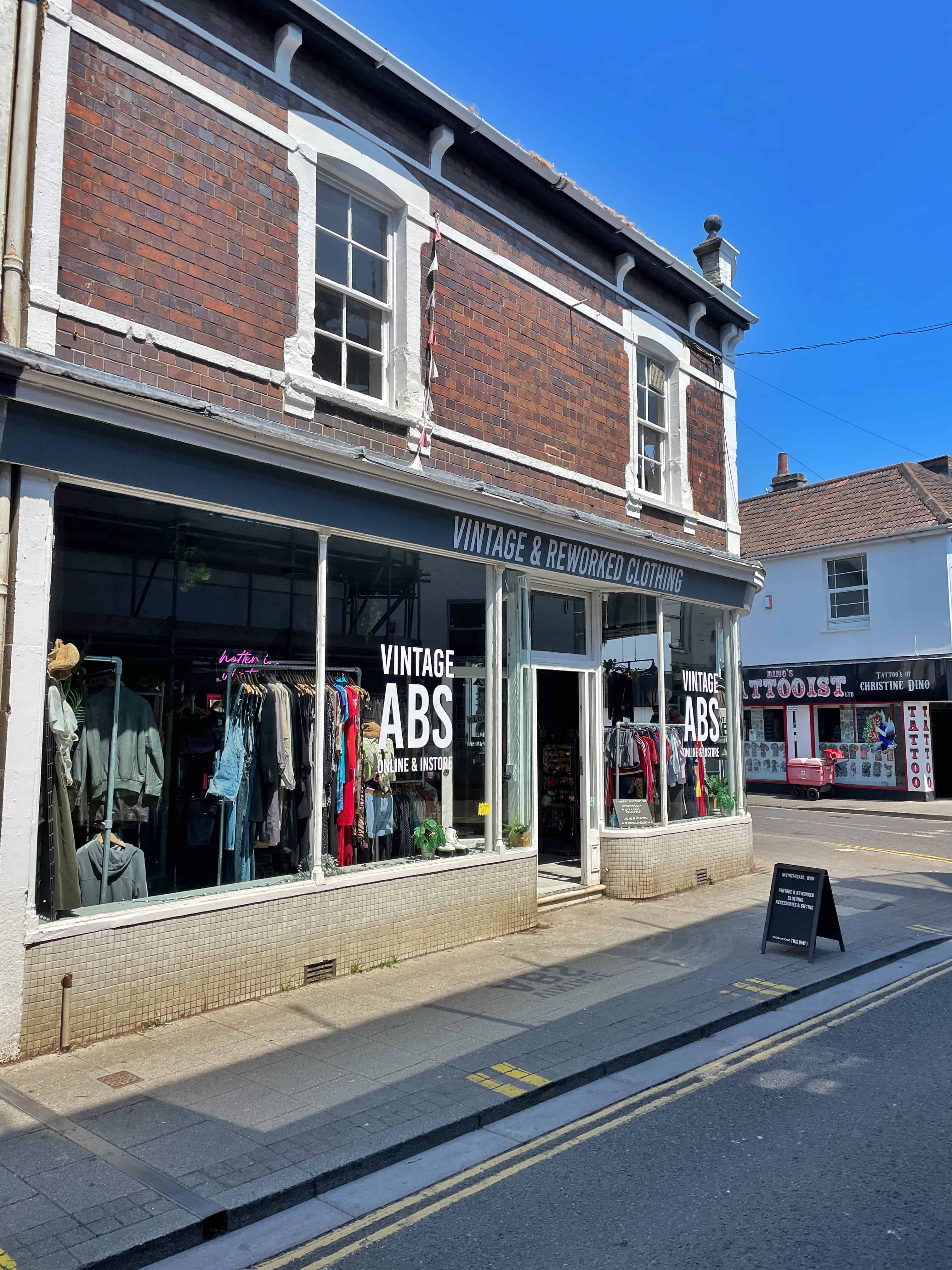
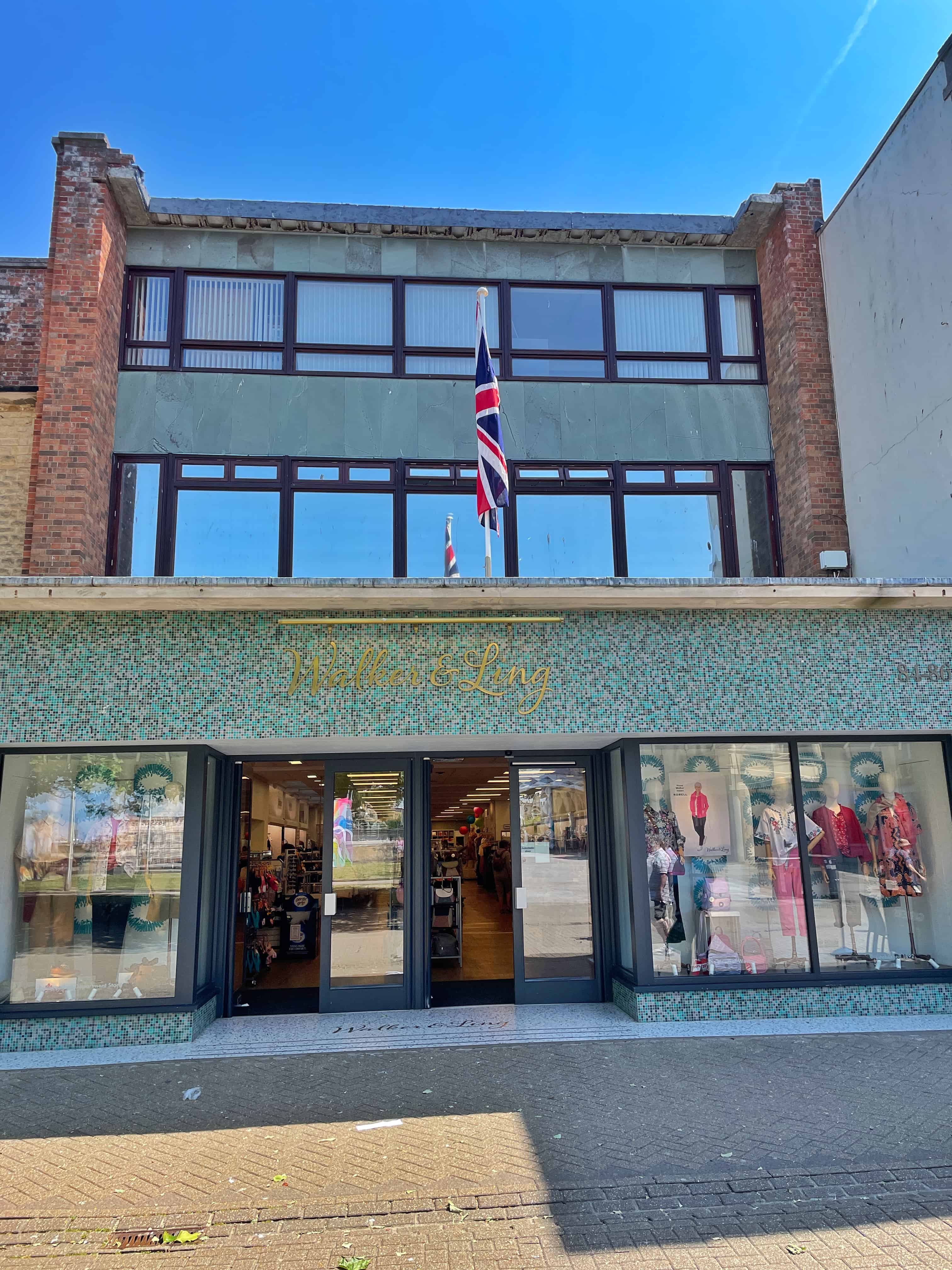
Where can people find out more about the investment and strategy for Super Weston?
Superweston.net – it’s a growing website, we’re always populating it. It’s a shared resource, it’s not the council’s necessarily, there’s a lot of partnership work going on in the town. It’s co-funded by by the town council and Weston Business Improvement District and The Grand Pier, and we’re always looking for others to join as well. I hope you get a real sense of the opportunity in Weston and the potential as well. We want the good developers and investors – the socially responsible ones.
You’ve clearly done an awful lot for this town over the last five years. So thank you as a citizen of Weston-super-Mare for all of your hard work. What are you going off to do?
Well, it’s not all been me, there’s a great team and a great set of partners. But I’ll take a little bit of credit if I have to. I’m off to do a similar job in Bristol – regeneration, economic development, planning, as well as climate emergency and some of their strategic transport stuff.
There’s a lot of activity going on in Bristol and I know it’s going to be very busy. It’s a much bigger city, but I’m really looking forward to it, it’s my home, it’s where my son was born and where we’re growing a bit older as a family, but I’ll always love Weston and North Somerset. I think it’s a fantastic place.
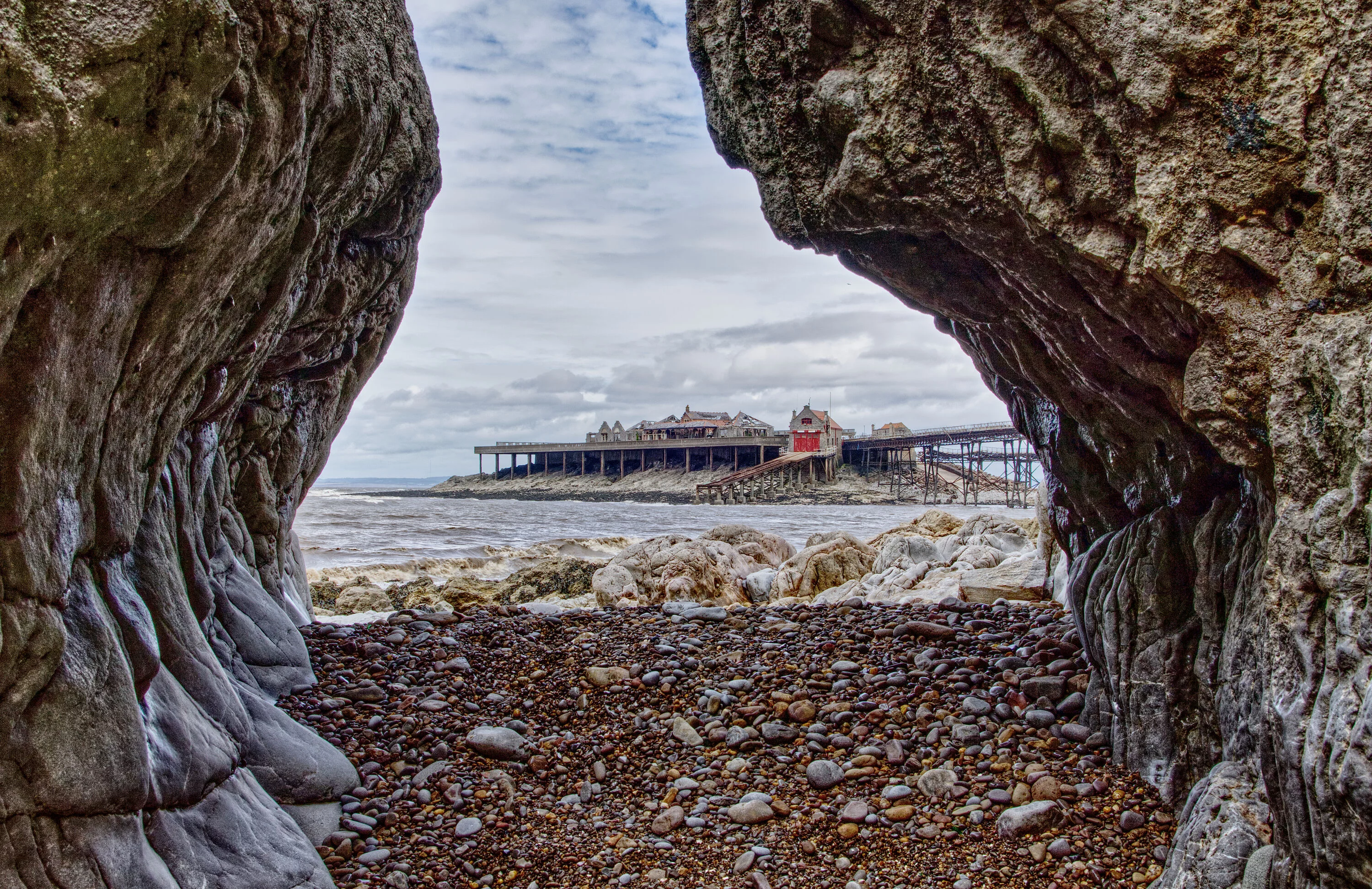
Important meeting to begin the development of Birnbeck Pier
The progression of the Birnbeck Pier restoration project in Weston-super-Mare will be a focal point at the upcoming North Somerset Council meeting on February 7 2024
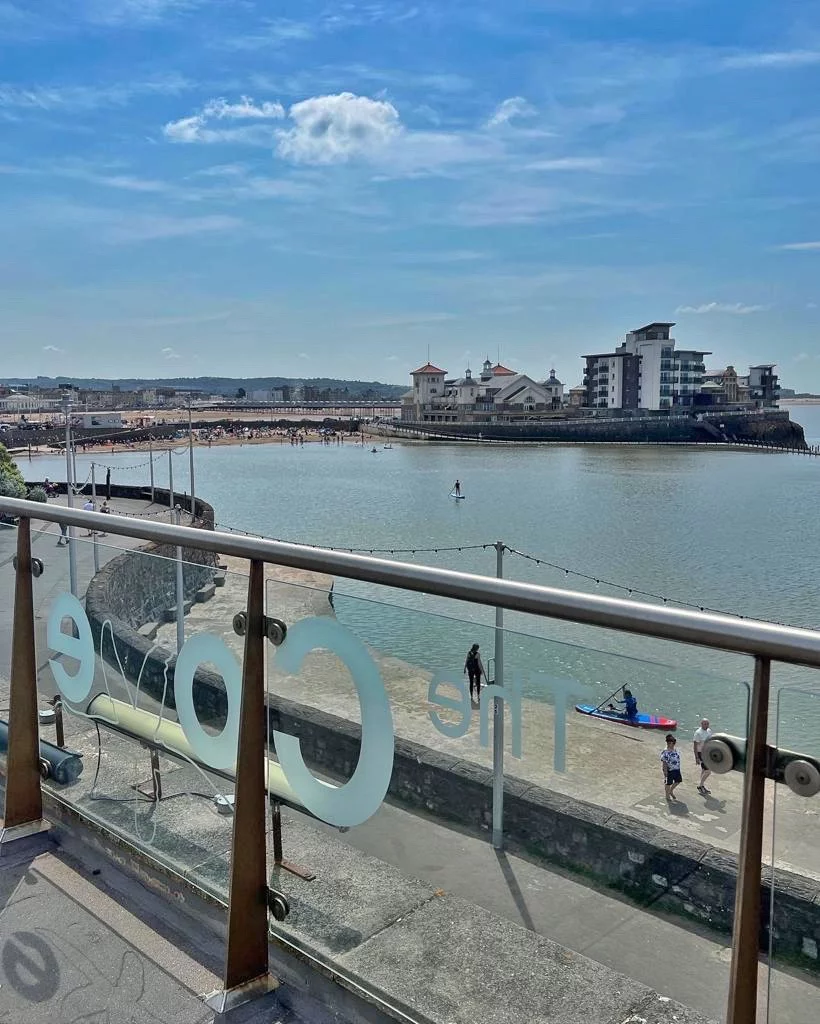
Marine Lake enhancement work begins
The upcoming enhancement phase at Weston-super-Mare's Marine Lake is set to commence this week 6th February 2024, marking a significant milestone in the rejuvenation efforts facilitated by North Somerset Council's successful bid for a £20 million investment from the UK government's Levelling Up Fund.
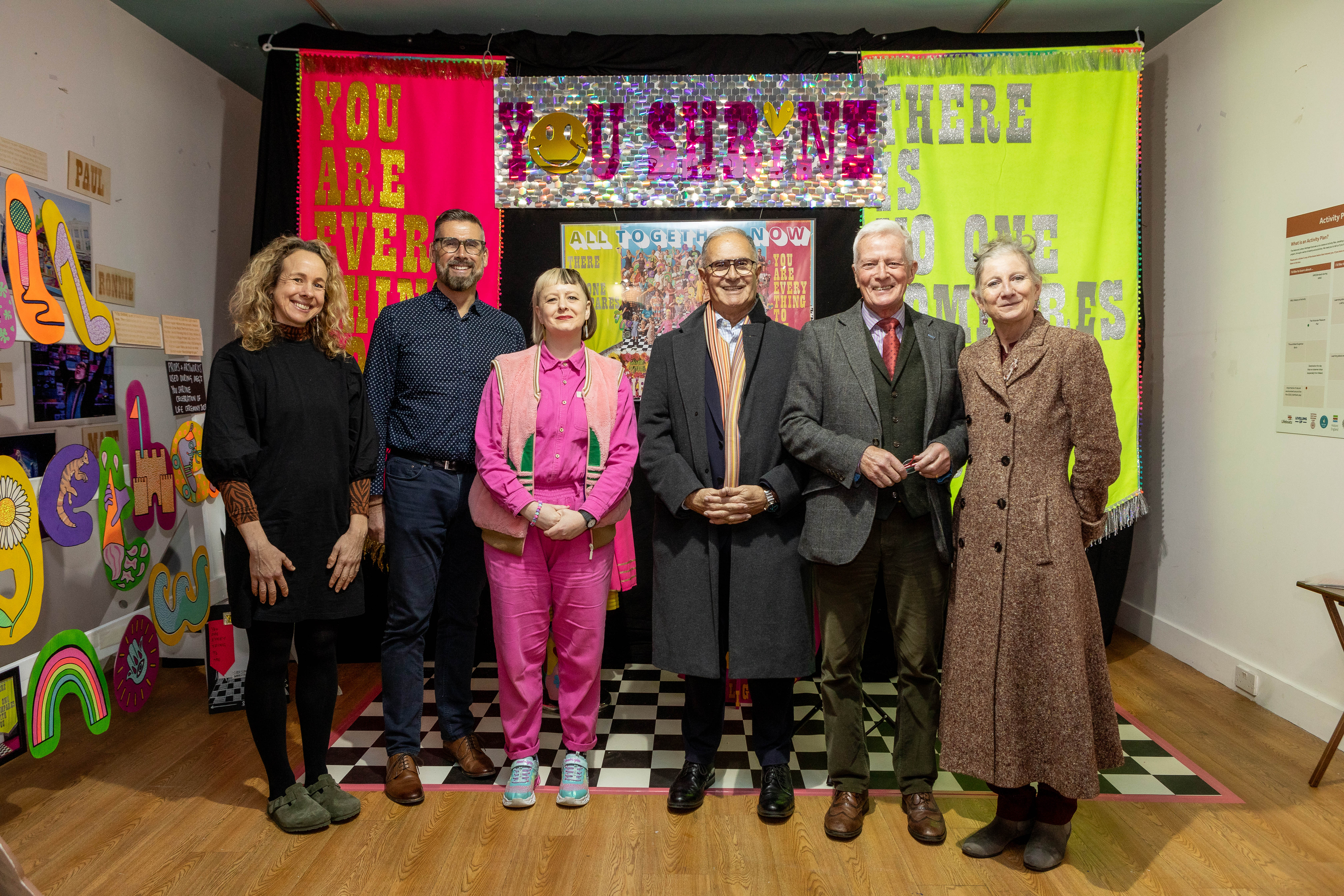
New Exhibition Celebrates Weston’s High Street Heritage Action Zone
Dive into Weston's history at 'All Together Now,' a free exhibition revealing the High Street Heritage Action Zone's £1.1m investment from Historic England.